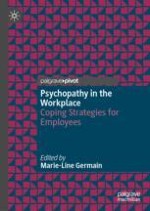2024 | OriginalPaper | Buchkapitel
9. Law and Psychopaths in the Workplace
verfasst von : Benedict Sheehy, Bruce Baer Arnold
Erschienen in: Psychopathy in the Workplace
Aktivieren Sie unsere intelligente Suche, um passende Fachinhalte oder Patente zu finden.
Wählen Sie Textabschnitte aus um mit Künstlicher Intelligenz passenden Patente zu finden. powered by
Markieren Sie Textabschnitte, um KI-gestützt weitere passende Inhalte zu finden. powered by
